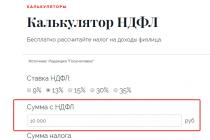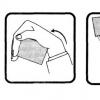The term "implicit Z." introduced in the 50s. 20th century Michael Polanyi. Z., which cannot be transmitted in a linguistic form, but can be transmitted in the course of training (a beautiful scientific solution, an elegantly staged experiment) - (understood, but you cannot say).
Implicit Z.- hidden, peripheral in contrast to the central, i.e. in the focus of consciousness. The empirical basis of personal taciturn Z. is unconscious sensations as information received by the senses, but not passed through the consciousness in full; unconscious and non-verbalized skills and abilities; and finally, life-practical, everyday Z. In scientific texts, various implicit grounds and prerequisites function as mandatory, additional to explicit Z. philosophical, general scientific, ethical, aesthetic, etc. Traditions, everyday customs and common sense, as well as prejudice, foreknowledge, and prejudices are also present in the NT as implicit forms. Implicit Z. can be understood, therefore, as some non-verbalized and pre-reflective form of consciousness and self-consciousness of the subject, as an important prerequisite and condition for communication, cognition and understanding.
Speaking of implicit Z., one cannot ignore the work of the famous British scientist and philosopher Michael Polanyi (1891-1976). He owns a number of original works on F. and the sociology of science, of which the most famous book is "Personal Z.". The basis of Polanyi's theory of knowledge is his epistemology of implicit cognition, which he first outlined in 1958. He proceeds from the existence of 2 types of cognition: central or main, explicated, and peripheral, implicit, hidden, implicit. Moreover, the implicit element of the cognitive activity of the subject is interpreted not just as an unformalizable excess of information, but as a necessary basis for the logical forms of Z.
The empirical basis of implicit Z. forms unconscious sensations (their full awareness, according to Polanyi, cannot be - "a person knows more than he can say"). Implicit Z. is personal by definition. It manifests itself in various cognitive acts. This is also a clarification of the meaning of the terms enclosed in quotation marks, i.e. used in a figurative sense, the specific understanding of which in different people forms a "personal coefficient". And in the use of terms in their direct meaning, Polanyi notes, there is always a “risk” of semantic indeterminacy: any term is always loaded with implicit, implicit Z. Therefore, in order to adequately understand the meaning of the term, it is necessary to reconstruct the theoretical context of its use.
With the concept of implicit Z, the theory of personal Z is also connected. “In the act of knowing, there is a passionate contribution of the knowing person and ... this additive is not evidence of imperfection, but an essential element of Z.”
The concept of implicit knowledge is, of course, of considerable interest both to philosophers and to specialists in the field of psychology, the sociology of knowledge, artificial intelligence. However, many of the problems posed by Polanyi did not find sufficient solutions in him. Thus, the author practically does not investigate the transition of implicit z. to explicit, although he notes that any definitions "only shift the area of the implicit, but cannot eliminate it." The problem of generating implicit knowledge by explicit knowledge remains outside of his concept.
M. Polanyi: Implicit Z. is not articulated in language and is embodied in bodily skills, perception schemes, and practical skills. It does not allow full explication and presentation in textbooks, but is passed "from hand to hand", in communication and personal contacts of researchers. At present, there is growing interest in the problem of the irrational, i.e. what lies beyond the reach of the mind and is inaccessible to comprehension with the help of known rational means, but at the same time, the conviction that the presence of irrational layers in the human spirit gives rise to that depth from which new meanings, ideas, creations appear. The mutual transition of the rational and the irrational is one of the fundamental foundations of the process of cognition. However, the importance of non-rational factors should not be exaggerated, as do supporters of irrationalism.
M. Polanyi: the concept of implicit knowledge
Polanyi, like Kuhn, proceeds from ideas about the development of science that are different from Popper's, considering as its essential characteristics the cultural and historical prerequisites that form not only the appearance of science as a social institution, but also the very criteria of scientific rationality. Together with Kuhn, he considers the task of the philosophy of science to be the identification of its human factor. Rejecting the neo-positivist opposition of the object and subject of cognition, Polanyi insists that it is not an abstract insight into the essence of things in themselves that is characteristic of man, but the correlation of reality with the human world. Any attempt to eliminate the human perspective from the picture of the world leads not to objectivity, but to absurdity. In his opinion, the basis of scientific progress is the personal penetration of the scientist into the essence of the research problem. The condition for the successful functioning of the scientific team is the acquisition by its members of common intellectual skills that form the basis joint work scientists.
The meaning of scientific research, according to Polanyi, is the penetration into objective rationality and the internal structure of reality. In his opinion, scientific hypotheses are not derived directly from observation, and scientific concepts from experiments; it is impossible to construct the logic of scientific discovery as a formal system. Polanyi's concept is aimed at rejecting both purely empirical and formal-logicist approaches - its basis is the epistemology of implicit knowledge.
The basis of the concept of implicit knowledge is the thesis of the existence of two types of knowledge: central (explicit) and peripheral (hidden, implicit). At the same time, the latter is considered not just as an unformalizable excess of information, but as extremely important basis logical forms of knowledge. Any term, according to Polanyi, is loaded with implicit knowledge, and an adequate understanding of its meaning is possible only in a theoretical context of use.
Polanyi has priority in studying the role of such forms of knowledge transfer, where logical-verbal forms play an auxiliary role (through demonstration, imitation, etc.). The premises on which the scientist relies in his work cannot be fully verbalized, ᴛ.ᴇ. express in language. It is knowledge of this type that Polanyi called implicit knowledge. “... At the very heart of science, there are areas of practical knowledge that cannot be conveyed through formulations.” These include traditions and value orientations.
Implicit knowledge includes not only peripheral knowledge of the elements of a certain integrity, but also those integrative processes through which it is included in the integrity. The process of cognition, according to Polanyi, appears as a constant expansion of the framework of implicit knowledge with the parallel inclusion of its components in the central knowledge. Any definitions push back, but do not eliminate the area of the implicit. The information received through the senses is much richer than that which passes through the consciousness, a person knows more than he can express. Such unconscious sensations form the empirical basis of implicit knowledge.
There are two types of tacit knowledge and tacit traditions. The former are associated with the reproduction of direct patterns of activity and are transmitted at the level of direct demonstration of patterns of activity (social relay races), they are impossible without personal contacts; the latter assume the text as an intermediary, for them such contacts are optional. At the root of implicit traditions can lie both patterns of action and patterns of products. So, abstraction, generalization, formalization, classification, axiomatic method do not exist in the form of an established sequence of operations. Moreover, they do not have to exist at all.
Related to the concept of implicit knowledge is Polanyi's theory of personal knowledge. He points out that knowledge is obtained by specific individuals, the process of cognition is non-formalizable, the quality of knowledge depends on the originality of a particular scientist, although he does not pay enough attention to the social aspects of cognition, and the thesis about the personal nature of the latter leads him, following K. Popper, to the conclusion about the relativity of any knowledge. According to Polanyi, the main point determining the acceptance of any scientific theory by a scientist is not the degree of its critical substantiation, its conscious correlation with the norms accepted in science, but only the degree of personal “getting used to” this theory, trust in it. The category of faith is central to Polanyi's understanding of cognition and knowledge. He considers the very introduction of a person to science as an act of some kind of personal conversion, by analogy with the conversion to a religious faith.
The disadvantage of Polanyi's theory is that he does not address the genetic relationship between explicit and implicit knowledge. At the same time, emphasizing the role of informal, meaningful components in scientific research, Polanyi, from the thesis about the impossibility of complete algorithmization and formalization of cognition, makes a very controversial conclusion from the point of view of science about the little use of methodological research in general. (In my opinion, here he to some extent anticipates the work of P. Feyerabend).
Polanyi's work largely determined the further evolution of post-positivist philosophy. So, it was he who first formulated a number of core ideas in this direction: the incommensurability of various conceptual systems, the variability of the norms of scientific rationality, ideas about anomalies scientific development etc.
M. Polanyi: the concept of implicit knowledge - concept and types. Classification and features of the category "M. Polanyi: the concept of implicit knowledge" 2017, 2018.
The concept of personal knowledge M. Polanyi.
Peripheral (implicit) knowledge.
Three areas of correlation between thinking and speech. - The area of "inexpressible" and the area of "difficulty understanding".
The instrumental nature of "knowing how"
In the philosophy of science, the author's concepts of the development of science M. Polanyi, St. Toulmin, T. Kuhn, I. Lakatos, J. Agassi, P. Feyerabend, J. Holton. The concept of implicit, personal knowledge is distinguished by the greatest originality. Polanyi. Michael Polanyi (1891-1976) - British scientist, a native of Hungary. He worked in Berlin at the Institute of Physical Chemistry, after the Nazis came to power in Germany in 1933, he emigrated to the UK, where he held the position of professor of physical chemistry and social sciences at the University of Manchester.
M. Polanyi takes a step towards the sociology of science. His famous work, by its very name, “Personal Knowledge. On the way to post-critical philosophy” manifests new priorities. Of course, this concept was met with hostility by K. Popper, who accused her of irrationalism. According to Rorty, Quine also reproached Polanyi for wanting to get rid of the notion of observation 1 . Although the main pathos of M. Polanyi's concept was to overcome the false ideal of a depersonalized scientific knowledge, mistakenly identified with objectivity. “The ideal of impersonal, impartial truth is subject to revision, taking into account the deeply personal nature of the act by which truth is proclaimed,” the thinker argued. “I have abandoned the ideal of scientific impartiality,” he wrote, “and I want to propose a different ideal of knowledge.” Discussing the title of his book “Personal Knowledge”, the scientist noted: “It may seem that these two provisions contradict each other; for true knowledge is considered impersonal, universal, objective. For me, knowledge is an active comprehension of knowable things, an action that requires special art.
In the epistemology of M. Polanyi, anthropological orientations are significantly strengthened. The main theses are the conclusions:
science is made by people with skill;
the art of cognitive activity cannot be learned from a textbook. It is transmitted only in direct communication with the master. (Thus, the traditional principle “Do as I do!” sounds with renewed vigor and is presented in a new paradigm);
people who make science cannot be replaced by others and separated from the knowledge they produce;
motives are extremely important in cognitive and scientific activity. personal experience, feelings, inner faith in science, in its value, scientist's interest, personal responsibility 5 .
For Polanyi, personal knowledge is intellectual self-giving, the passionate contribution of the knower. This is not evidence of imperfection, but an essential element of knowledge. He emphasizes that any attempt to exclude the human perspective from our picture of the world inevitably leads to nonsense. The scientist is sure that the establishment of the truth becomes dependent on a number of our own, implicit grounds and criteria that are not amenable to formal definition. Corresponding restrictions on the status of truth formalized in words are also inevitable.
Polanyi re-evaluates the huge role of faith in the cognitive process, noting that “faith has been so discredited that, in addition to a limited number of situations related to the profession of religion, modern man has lost the ability to believe, to accept with conviction any statements that the phenomenon of faith received the status of a subjective manifestation, which does not allow knowledge to reach universality” 6 . Today, according to the author, we must again recognize that faith is the source of knowledge. It builds a system of mutual public trust. Consent explicit and implicit, intellectual passion, the inheritance of culture - all this suggests impulses closely related to faith. Reason relies on faith as its ultimate foundation, but every time it is able to question it. The emergence and existence in science of sets of axioms, postulates and principles is also rooted in our belief that the world is a perfect harmonious whole, amenable to our knowledge.
For M. Polanyi it is obvious that the mastery of knowledge cannot be described and expressed by means of language, no matter how developed and powerful it may be. This thesis, of course, contradicts the task of creating a unified language of science. The scientific knowledge presented in the texts of scientific articles and textbooks, according to the thinker, is just a certain part that is in the focus of consciousness. The other part is focused on the half of the so-called peripheral (or implicit) knowledge that constantly accompanies the process of cognition. Implicit, peripheral knowledge can be interpreted by analogy with the “marginal recognition of sensations” from an instrument in the hand, without which the process of activity as a purposeful process is impossible. “The act of knowing is carried out by organizing a series of objects that are used as tools or landmarks, and shaping them into a skillful result, theoretical or practical. We can say that in this case our consciousness is "peripheral" in relation to the main "focus of consciousness" of the integrity that we achieve as a result.
and
The second area of knowledge is quite well transmitted by means of speech. This is the area where the component of thinking exists in the form of information that can be completely conveyed by well-understood speech, so that here the area of tacit knowledge coincides with the text, the bearer of the meaning of which it is. In the third area, the area of "difficult understanding" - between the non-verbal content of thinking and speech means - there is an inconsistency that makes it difficult to conceptualize the content of thought 4 . This is an area in which tacit knowledge and formal knowledge are independent of each other. The mechanism of acquaintance with the object is also immersed in the volume of personal, implicit knowledge, as a result of which the latter is included in the process of life activity, the skills and abilities of communicating with it are formed. Thus, acquaintance with an object as initial knowledge about it, turning into a skill and ability to use, handle this object, becomes a person's personal knowledge. Note, however, that the skills, for all their similarity in the scheme of activity, are different and individual. The task of copying someone else's skill generates its own layer of personal knowledge. (H.P. - the experience of Cicero).“The writing of the rules of skillful action, - M. Polanyi is sure, - can be useful, but in general they do not determine the success of the activity; they are maxims that can serve as a guide only if they fit into the practical skill or mastery of the art. They cannot replace personal knowledge."
It is set by the whole bodily organization of a person and is inseparable from instrumental knowledge, which has remained unarticulated. Operationally, the meaning is formed, as it were, in the following plane - in the process of the experience of internal reading of the emerging text “for oneself” and efforts to articulate it “outside”, through the language system created by man. Polanyi argues that meaning is also inseparable from the personal confidence that is invested in the proclaimed scientific judgment.
Researchers of the thinker's creativity emphasize that the discoveries of Gestalt psychology prompted him to revise the foundations of the traditional concept of knowledge. Gestalt - as an image or a visually stable spatially perceived form of objects - suggests the primacy of the whole over the parts. It is applied to mental formations to recreate a single holistic structure that unites and connects various elements and components. Indeed, the technology of operational skills, the processes of the formation of skills as knowledge, which, in addition to the objective result, pours into new meanings, into personality-colored content, escaped the sight of methodologists and epistemologists. M. Polanyi led to the need to consider a new model for the growth of scientific knowledge, which would take into account the existing personal-cognitive mechanisms of cognitive activity.
Comments and explanations:
Knowledge - selective, ordered, in a certain way (method) obtained, in accordance with some criteria (norms), formalized information that has social significance and is recognized as knowledge by certain social subjects and society as a whole. Depending on the above criteria, knowledge can be divided into two types according to the level of its functioning: ordinary knowledge of everyday life and specialized knowledge (scientific, religious, philosophical, etc.). There are also structures of explicit, presented, rationally designed (expressed), and implicit (latent) knowledge, localized in the structures of accumulated sociocultural experience and in the human subconscious. In addition, in explicit knowledge, one can single out “objective”, aimed at objects, processes, phenomena of knowledge and meta-knowledge (knowledge about knowledge). In philosophy, the following sections deal with the problem of knowledge: epistemology (“the doctrine of knowledge”), epistemology (“the doctrine of knowledge”). Methodology (“the doctrine of method”) claims a special status.
Let us now consider in detail the relationship between explicit and implicit knowledge.
explicit knowledge- this is such knowledge that can be codified into information and stored on media (paper and electronic), and it will exist regardless of its perception by a person. Explicit knowledge corresponds to today's, yesterday's and can be recorded on a medium.
Intangible knowledge - hidden, non-articulated and non-reflective personal knowledge, non-articulated and non-reflective layer of human experience. Implicit knowledge is associated with the practical experience of the individual and cannot be codified without partial loss of information. Implicit knowledge includes skills, abilities, abilities, feelings of a person. Implicit knowledge is a unique resource that is difficult to copy.
As shown above, M. Polanyi proceeds from the thesis that a person has two types of knowledge: explicit, articulated, expressed in concepts and judgments, and implicit, implicit, not articulated in language, but embodied in bodily skills, in perception schemes, and practical mastery. . In his treatment of tacit knowledge, Polanyi draws a distinction between "focal" perception and recognition of things of "peripheral" or "instrumental" knowledge.
Polanyi's central idea consists in the fact that science is made by people who have mastered the appropriate skills and abilities of cognitive activity, the mastery of cognition, which cannot be exhaustively described and expressed by means of language. Therefore, articulated scientific knowledge, what is presented in the texts of textbooks, scientific articles, according to Polanyi, is only a small part of knowledge that is in the focus of consciousness. The perception of meaning is impossible outside the context of peripheral, implicit knowledge. The meaning of scientific statements is determined by the implicit context of hidden (or tacit) knowledge, which is instrumental in nature: “knowledge-how-it is done”, “knowledge-skills”, given by the entire bodily and mental organization of a person. The process of articulation, "reading" of the meaning, which is in the focus of consciousness, is impossible without a holistic, non-detailed context.
In scientific knowledge, explicit, articulated knowledge acts as interpersonal knowledge, it is represented in scientific theories, hypotheses, theoretical models, and experimental laws. However, according to Polanyi, articulation always remains incomplete in relation to knowledge. Therefore, the progress of science is impossible without implicit personal knowledge, which is latently contained in the individual experience of researchers - in their art of experimentation, diagnostics, mastery of theoretical models. This non-articulated, "silent" knowledge is not presented in textbooks and manuals, it cannot be found in scientific monographs and journal articles. It is transmitted either in the course of direct personal contacts of scientists, or in the process of joint experimental research. Polanyi's concept was put forward as an alternative to the "fundamentalist" theories of knowledge (logical empiricism, Marxism), which completely exclude the presence of innate, unconscious and non-reflective forms of knowledge. Progress in scientific knowledge, according to Polanyi, depends on the dedication of the individual, in which contacts with reality are established. Self-confidence determines our willingness to give up a routine course of action. Our dedication to the search for something new is imbued with passion.
We know our language in the sense that we know how to use it to convey this or that objective content. But this knowledge of the language is implicit, because for us the language is inseparable from the objects that we receive with its help. Sometimes we do not even notice this language itself, its structure, it is in the "background", on the "periphery" of consciousness. But through reflection, language can turn into explicit knowledge. When we speak, we do not reflect "correctness", compliance with the norms of speech, literacy of writing. Norms, rules are observed intuitively, automatically. Through reflection, we turn implicit knowledge into explicit knowledge.
I call Polanyi's position "post-critical rationalism". This means, firstly, the recognition of the obvious fact that science is made by people, and moreover by people who have mastery; the art of cognitive activity and its subtleties cannot be learned from a textbook, it is given only in direct communication with the master. It follows from this that, secondly, people who make science cannot be mechanically and simply separated from the knowledge they produce and replaced by other introductions to this knowledge only with the help of textbooks. And, finally, thirdly, Polanyi introduces into the modern philosophy of science the motive of scientific experience as an inner experience, inner faith in science, in its value, the passionate interest of the scientist in the search for objective scientific truth, personal responsibility to it.
Implicit knowledge is mastered by a person in practical actions, in modern scientific work and serve as the basis for his purposeful activity. In science, explicit knowledge is represented in concepts, theories, and implicit knowledge is represented as personal knowledge woven into the art of experimentation and theoretical skills of scientists, into their passions and beliefs. From Polanyi's point of view, there are "two types of knowledge, which are always jointly included in the process of knowing the all-encompassing wholeness. These are: - knowledge of the object by focusing on it as a whole; - knowledge of the object based on our ideas about what purpose it serves as part of this integrity, a part of which it is. The latter can be called implicit knowledge. Implicit knowledge, according to Polanyi, is not subject to full explication and is transmitted through direct training in the skill of scientific research and personal contacts of scientists. It is passed from hand to hand. Polanyi's scientific experience is internally experienced, due to the passionate desire of the researcher to achieve truly scientific truth, and is clearly colored by personality.
“When I perceive some group of objects, at the same time I am aware of the difference between my consciousness and these objects, I am aware of the spatio-temporal position of my body. However, all these facts of consciousness are not in its "focus", but, as it were, in the "background", on its "periphery". Directly my consciousness is aimed at external objects, which are the subject of knowledge. My body, my consciousness, my cognitive process in this case are not included in the circle of objects of experience, objects of knowledge. Thus, the knowledge about oneself assumed by any experience, expressed in the form of self-consciousness, is knowledge of a special kind. It could be somewhat tentatively called "implicit knowledge" in contrast to the explicit knowledge with which we usually deal. The purpose of the cognitive process is to obtain explicit knowledge. Implicit knowledge acts as a means, a way of obtaining explicit knowledge” / Lektorsky V.A. Subject, object, cognition. - M. 1980. P.255. When I touch an object with my hand, I feel the object itself, not my hand. Tactile perception speaks of an external object, and not of itself. And only in the “background” of consciousness do I experience the act of my own touch and localize the impact of the object on me at my fingertips. In this case, if I touch the object not with my hand, but with a stick, the tactile perception again refers to the object itself, and not to the means I use - the plaque. The latter no longer falls into the "focus" of consciousness, but turns out to be on its "periphery" and is experienced as a direct continuation of my body. In this case, the sensation of the impact of the object - we have already pointed out that this is not the same as the tangible image of objects! - is experienced by me as localized no longer at the fingertips, but at the end of the stick / Lektorsky V.A. Subject, object, cognition. - M. 1980. P.255.
M. Polanyi, re-evaluates the huge role of faith in the cognitive process, noting that “faith has been so discredited that, in addition to a limited number of situations related to the profession of religion, modern man has lost the ability to believe, to accept with conviction any statements that the phenomenon of faith has received the status of a subjective manifestation, which does not allow knowledge to reach universality. Today, according to the author, we must again recognize that faith is the source of knowledge. It builds a system of mutual public trust. Consent explicit and implicit, intellectual passion, the inheritance of culture - all this suggests impulses closely related to faith. Reason relies on faith as its ultimate foundation, but every time it is able to question it. The emergence and existence in science of sets of axioms, postulates and principles is also rooted in our belief that the world is a perfect harmonious whole, amenable to our knowledge.
Polanyi demonstrates his rich awareness of the course and development of the philosophy of science. He states (not without regret) that such a representation of natural science is chosen as the ideal of knowledge, in which it looks like a set of statements, “objective in the sense that their content is entirely determined by observation, and their form can be conventional.” Thus, he indirectly points to all three stages passed by the philosophy of science, reducing it to an economical description of facts, to a conventional language for recording conclusions, and to formulating observational data in the language of protocol sentences. However, intuition, in his opinion, cannot be removed from the cognitive process.
In M. Polanyi's concept of personal knowledge, interpreters single out three main areas or three options for the ratio of thinking and speech. The first is characterized by the area of implicit knowledge, the verbal expression of which is not self-sufficient or insufficiently adequate. This is an area in which the component of tacit implicit knowledge dominates to such an extent that its articulated expression is essentially impossible here. It can be called the realm of the "inexpressible". It encompasses knowledge based on experiences and life impressions. This is deeply personal knowledge, and it is very, very difficult to translate and socialize. Art has always tried to solve this problem by its own means. The act of co-creation and empathy reflected the ability to look at the world and life through the eyes of the hero of the life drama.
The second area of knowledge is quite well transmitted by means of speech. This is the area where the component of thinking exists in the form of information that can be completely conveyed by well-understood speech, so that here the area of tacit knowledge coincides with the text, the bearer of the meaning of which it is. In the third area, the area of "difficult understanding" - between the non-verbal content of thinking and speech means - there is an inconsistency that makes it difficult to conceptualize the content of thought 4 . This is an area in which tacit knowledge and formal knowledge are independent of each other. The mechanism of acquaintance with the object is also immersed in the volume of personal, implicit knowledge, as a result of which the latter is included in the process of life activity, the skills and abilities of communicating with it are formed. Thus, acquaintance with an object as initial knowledge about it, turning into a skill and ability to use, handle this object, becomes a person's personal knowledge. Note, however, that the skills, for all their similarity in the scheme of activity, are different and individual. The task of copying someone else's skill generates its own layer of personal knowledge. “The writing of the rules of skillful action, - M. Polanyi is sure, - can be useful, but in general they do not determine the success of the activity; they are maxims that can serve as a guide only if they fit into the practical skill or mastery of the art. They cannot replace personal knowledge."
The fundamental innovations of the concept of M. Polanyi consist in pointing out that the very meaning of scientific provisions depends on the implicit context of hidden knowledge, “knowledge as”, which has an instrumental character in its deep foundations. It is set by the entire bodily organization of a person and is inseparable from the instrumental knowledge that remains unarticulated. Operationally, the meaning is formed, as it were, in a cutting plane - in the process of the experience of internal reading of the emerging text “for oneself” and efforts to articulate it “outside”, through the language system created by man. Polanyi argues that meaning is also inseparable from the personal confidence that is invested in the proclaimed scientific judgment.
A modern scientist must be ready to record and analyze the results born outside and in addition to his conscious goal-setting, including the fact that the latter may turn out to be much richer than the native goal. Content-semantic contexts unplanned by goal-setting, unintentionally intruding into the result, reveal the world uninterestedly universally. A fragment of being isolated as a subject of study is in fact not an isolated abstraction. With a network of interactions, currents of multidirectional tendencies and forces, it is connected with the infinite dynamics of the world, the knowledge of which science is obsessed with. The main and secondary, central and peripheral, main and dead-end directions, having their own niches, coexist in constant non-equilibrium interaction. There are situations when the developing process does not contain ready-made forms of future states. They arise as by-products of interactions that take place outside the phenomenon itself, or at least on the periphery of this framework. And if earlier science could afford to cut off side branches - peripheral spheres that seemed insignificant - now this is an unaffordable luxury. It turns out that it is generally not easy to define what “not important” or “not interesting” means in science. Arising on the periphery of connections and relationships, against the background of the intersection of diverse chains of causation in a network of universal interaction (including under the influence of factors that have insignificantly manifested themselves in the past), a by-product can act as a source of neoplasm and be even more significant than originally set goal. He testifies to the indestructible desire of being to realize all its potentialities. Here there is a kind of equalization of opportunities, when everything that has a place to be declares itself and requires a recognized existence.
Knowledge can be divided into explicit, for example, codified, and implicit, that is, personal, which cannot be codified. In general, tacit knowledge is a curious substance. It cannot be seen, felt and 100% adopted, therefore, it is very difficult to manage. But it is the implicit knowledge that is often the most important. Philosopher of science Michael Polanyi, who introduced the very concept of "tacit knowledge" into culture, cites the following case as an illustration of the role of "tacit knowledge". One British laboratory bought equipment from American colleagues. Before starting work, the British carefully studied many operating instructions. However, the equipment never worked. The specialists puzzled over what was the matter until they decided to go to the manufacturer and see with their own eyes how to use the machines correctly. After returning, the team was able to start the equipment. When asked about what new specialists learned during the trip, they answered that they could not formulate anything new compared to what was contained in the instructions. Here is a prime example of detecting the presence of implicit knowledge. Or another example: it is known that the elder Kapitsa worked for a long time in the UK, headed a laboratory (research institute). When the Soviet government offered to buy this (NII) in connection with the end of Kapitsa's protracted business trip, Heisenberg helped in this, saying the following: the laboratory (NII) was created specifically for Kapitsa, and no one else could work there, so the laboratory must be sold to the Soviets.
Thus, it turns out that people are the carriers of this important type of knowledge, and this knowledge is transmitted during communication, such as internships, conferences, and joint work. Another example: In Ancient Rome there was such a practice of training future statesmen. Young man some well-known senator was brought into the house, and he, watching how the senator prepares political speeches, helping him in this, acquired skills, learned the norms of behavior. See about Cicero.
Through reflection, we turn implicit knowledge into explicit knowledge. §. Reflection as a tool for turning implicit knowledge into explicit knowledge.
The concept of personal knowledge M. Polanyi.
Peripheral (implicit) knowledge.
Three areas of correlation between thinking and speech. - The area of "inexpressible" and the area of "difficulty understanding".
The instrumental nature of "knowing how"
In the philosophy of science, the author's concepts of the development of science M. Polanyi, St. Toulmin, T. Kuhn, I. Lakatos, J. Agassi, P. Feyerabend, J. Holton. The concept of implicit, personal knowledge is distinguished by the greatest originality. Polanyi. Michael Polanyi (1891-1976) - British scientist, a native of Hungary. He worked in Berlin at the Institute of Physical Chemistry, after the Nazis came to power in Germany in 1933, he emigrated to the UK, where he held the position of professor of physical chemistry and social sciences at the University of Manchester.
M. Polanyi takes a step towards the sociology of science. His famous work, by its very name, “Personal Knowledge. On the way to post-critical philosophy” manifests new priorities. Of course, this concept was met with hostility by K. Popper, who accused her of irrationalism. According to Rorty, Quine also reproached Polanyi for wanting to get rid of the notion of observation 1 . Although the main pathos of the concept of M. Polanyi was to overcome the false ideal of depersonalized scientific knowledge , mistakenly identified with objectivity. “The ideal of impersonal, impartial truth is subject to revision, taking into account the deeply personal nature of the act by which truth is proclaimed,” the thinker argued. “I have abandoned the ideal of scientific impartiality,” he wrote, “and I want to propose a different ideal of knowledge.” Discussing the title of his book “Personal Knowledge”, the scientist noted: “It may seem that these two provisions contradict each other; for true knowledge is considered impersonal, universal, objective. For me, knowledge is an active comprehension of knowable things, an action that requires special art.
In the epistemology of M. Polanyi, anthropological orientations are significantly strengthened. The main theses are the conclusions:
science is made by people with skill;
the art of cognitive activity cannot be learned from a textbook. It is transmitted only in direct communication with the master. (Thus, the traditional principle “Do as I do!” sounds with renewed vigor and is presented in a new paradigm);
people who make science cannot be replaced by others and separated from the knowledge they produce;
in cognitive and scientific activity, the motives of personal experience, experience, inner faith in science, in its value, the scientist's interest, and personal responsibility are extremely important.
For Polanyi, personal knowledge is intellectual self-giving, the passionate contribution of the knower. This is not evidence of imperfection, but an essential element of knowledge. He emphasizes that any attempt to exclude the human perspective from our picture of the world inevitably leads to nonsense. The scientist is sure that the establishment of the truth becomes dependent on a number of our own, implicit grounds and criteria that are not amenable to formal definition. Corresponding restrictions on the status of truth formalized in words are also inevitable.
Polanyi re-evaluates the huge role of faith in the cognitive process, noting that “faith has been so discredited that, in addition to a limited number of situations related to the profession of religion, modern man has lost the ability to believe, to accept with conviction any statements that the phenomenon of faith received the status of a subjective manifestation, which does not allow knowledge to reach universality” 6 . Today, according to the author, we must again recognize that faith is the source of knowledge. It builds a system of mutual public trust. Consent explicit and implicit, intellectual passion, the inheritance of culture - all this suggests impulses closely related to faith. Reason relies on faith as its ultimate foundation, but every time it is able to question it. The emergence and existence in science of sets of axioms, postulates and principles is also rooted in our belief that the world is a perfect harmonious whole, amenable to our knowledge.
For M. Polanyi it is obvious that the mastery of knowledge cannot be described and expressed by means of language, no matter how developed and powerful it may be. This thesis, of course, contradicts the task of creating a unified language of science. The scientific knowledge presented in the texts of scientific articles and textbooks, according to the thinker, is just a certain part that is in the focus of consciousness. The other part is focused on the half of the so-called peripheral (or implicit) knowledge that constantly accompanies the process of cognition. Implicit, peripheral knowledge can be interpreted by analogy with the “marginal recognition of sensations” from an instrument in the hand, without which the process of activity as a purposeful process is impossible. “The act of knowing is carried out by organizing a series of objects that are used as tools or landmarks, and shaping them into a skillful result, theoretical or practical. We can say that in this case our consciousness is "peripheral" in relation to the main "focus of consciousness" of the integrity that we achieve as a result.
and
The second area of knowledge is quite well transmitted by means of speech. This is the area where the component of thinking exists in the form of information that can be completely conveyed by well-understood speech, so that here the area of tacit knowledge coincides with the text, the bearer of the meaning of which it is. In the third area, the area of "difficult understanding" - between the non-verbal content of thinking and speech means - there is an inconsistency that makes it difficult to conceptualize the content of thought 4 . This is an area in which tacit knowledge and formal knowledge are independent of each other. The mechanism of acquaintance with the object is also immersed in the volume of personal, implicit knowledge, as a result of which the latter is included in the process of life activity, the skills and abilities of communicating with it are formed. Thus, acquaintance with an object as initial knowledge about it, turning into a skill and ability to use, handle this object, becomes a person's personal knowledge. Note, however, that the skills, for all their similarity in the scheme of activity, are different and individual. The task of copying someone else's skill generates its own layer of personal knowledge. (H.P. - the experience of Cicero).“The writing of the rules of skillful action, - M. Polanyi is sure, - can be useful, but in general they do not determine the success of the activity; they are maxims that can serve as a guide only if they fit into the practical skill or mastery of the art. They cannot replace personal knowledge."
It is set by the whole bodily organization of a person and is inseparable from instrumental knowledge, which has remained unarticulated. Operationally, the meaning is formed, as it were, in the following plane - in the process of the experience of internal reading of the emerging text “for oneself” and efforts to articulate it “outside”, through the language system created by man. Polanyi argues that meaning is also inseparable from the personal confidence that is invested in the proclaimed scientific judgment.
Researchers of the thinker's creativity emphasize that the discoveries of Gestalt psychology prompted him to revise the foundations of the traditional concept of knowledge. Gestalt - as an image or a visually stable spatially perceived form of objects - suggests the primacy of the whole over the parts. It is applied to mental formations to recreate a single holistic structure that unites and connects various elements and components. Indeed, the technology of operational skills, the processes of the formation of skills as knowledge, which, in addition to the objective result, pours into new meanings, into personality-colored content, escaped the sight of methodologists and epistemologists. M. Polanyi led to the need to consider a new model for the growth of scientific knowledge, which would take into account the existing personal-cognitive mechanisms of cognitive activity.
Comments and explanations:
Knowledge - selective, ordered, in a certain way (method) obtained, in accordance with some criteria (norms), formalized information that has social significance and is recognized as knowledge by certain social subjects and society as a whole. Depending on the above criteria, knowledge can be divided into two types according to the level of its functioning: ordinary knowledge of everyday life and specialized knowledge (scientific, religious, philosophical, etc.). There are also structures of explicit, presented, rationally designed (expressed), and implicit (latent) knowledge, localized in the structures of accumulated sociocultural experience and in the human subconscious. In addition, in explicit knowledge, one can single out “objective”, aimed at objects, processes, phenomena of knowledge and meta-knowledge (knowledge about knowledge). In philosophy, the following sections deal with the problem of knowledge: epistemology (“the doctrine of knowledge”), epistemology (“the doctrine of knowledge”). Methodology (“the doctrine of method”) claims a special status.
Let us now consider in detail the relationship between explicit and implicit knowledge.
explicit knowledge- this is such knowledge that can be codified into information and stored on media (paper and electronic), and it will exist regardless of its perception by a person. Explicit knowledge corresponds to today's, yesterday's and can be recorded on a medium.
Intangible knowledge - hidden, non-articulated and non-reflective personal knowledge, non-articulated and non-reflective layer of human experience. Implicit knowledge is associated with the practical experience of the individual and cannot be codified without partial loss of information. Implicit knowledge includes skills, abilities, abilities, feelings of a person. Implicit knowledge is a unique resource that is difficult to copy.
As shown above, M. Polanyi proceeds from the thesis that a person has two types of knowledge: explicit, articulated, expressed in concepts and judgments, and implicit, implicit, not articulated in language, but embodied in bodily skills, in perception schemes, and practical mastery. . In his treatment of tacit knowledge, Polanyi draws a distinction between "focal" perception and recognition of things of "peripheral" or "instrumental" knowledge.
Polanyi's central idea consists in the fact that science is made by people who have mastered the appropriate skills and abilities of cognitive activity, the mastery of cognition, which cannot be exhaustively described and expressed by means of language. Therefore, articulated scientific knowledge, what is presented in the texts of textbooks, scientific articles, according to Polanyi, is only a small part of knowledge that is in the focus of consciousness. The perception of meaning is impossible outside the context of peripheral, implicit knowledge. The meaning of scientific statements is determined by the implicit context of hidden (or tacit) knowledge, which is instrumental in nature: “knowledge-how-it is done”, “knowledge-skills”, given by the entire bodily and mental organization of a person. The process of articulation, "reading" of the meaning, which is in the focus of consciousness, is impossible without a holistic, non-detailed context.
In scientific knowledge, explicit, articulated knowledge acts as interpersonal knowledge, it is represented in scientific theories, hypotheses, theoretical models, and experimental laws. However, according to Polanyi, articulation always remains incomplete in relation to knowledge. Therefore, the progress of science is impossible without implicit personal knowledge, which is latently contained in the individual experience of researchers - in their art of experimentation, diagnostics, mastery of theoretical models. This non-articulated, "silent" knowledge is not presented in textbooks and manuals, it cannot be found in scientific monographs and journal articles. It is transmitted either in the course of direct personal contacts of scientists, or in the process of joint experimental research. Polanyi's concept was put forward as an alternative to the "fundamentalist" theories of knowledge (logical empiricism, Marxism), which completely exclude the presence of innate, unconscious and non-reflective forms of knowledge. Progress in scientific knowledge, according to Polanyi, depends on the dedication of the individual, in which contacts with reality are established. Self-confidence determines our willingness to give up a routine course of action. Our dedication to the search for something new is imbued with passion.
We know our language in the sense that we know how to use it to convey this or that objective content. But this knowledge of the language is implicit, because for us the language is inseparable from the objects that we receive with its help. Sometimes we do not even notice this language itself, its structure, it is in the "background", on the "periphery" of consciousness. But through reflection, language can turn into explicit knowledge. When we speak, we do not reflect "correctness", compliance with the norms of speech, literacy of writing. Norms, rules are observed intuitively, automatically. Through reflection, we turn implicit knowledge into explicit knowledge.
I call Polanyi's position "post-critical rationalism". This means, firstly, the recognition of the obvious fact that science is made by people, and moreover by people who have mastery; the art of cognitive activity and its subtleties cannot be learned from a textbook, it is given only in direct communication with the master. It follows from this that, secondly, people who make science cannot be mechanically and simply separated from the knowledge they produce and replaced by other introductions to this knowledge only with the help of textbooks. And, finally, thirdly, Polanyi introduces into the modern philosophy of science the motive of scientific experience as an inner experience, inner faith in science, in its value, the passionate interest of the scientist in the search for objective scientific truth, personal responsibility to it.
Implicit knowledge is mastered by a person in practical actions, in modern scientific work and serve as the basis for his purposeful activity. In science, explicit knowledge is represented in concepts, theories, and implicit knowledge is represented as personal knowledge woven into the art of experimentation and theoretical skills of scientists, into their passions and beliefs. From Polanyi's point of view, there are "two types of knowledge, which are always jointly included in the process of knowing the all-encompassing wholeness. These are: - knowledge of the object by focusing on it as a whole; - knowledge of the object based on our ideas about what purpose it serves as part of this integrity, a part of which it is. The latter can be called implicit knowledge. Implicit knowledge, according to Polanyi, is not subject to full explication and is transmitted through direct training in the skill of scientific research and personal contacts of scientists. It is passed from hand to hand. Polanyi's scientific experience is internally experienced, due to the passionate desire of the researcher to achieve truly scientific truth, and is clearly colored by personality.
“When I perceive some group of objects, at the same time I am aware of the difference between my consciousness and these objects, I am aware of the spatio-temporal position of my body. However, all these facts of consciousness are not in its "focus", but, as it were, in the "background", on its "periphery". Directly my consciousness is aimed at external objects, which are the subject of knowledge. My body, my consciousness, my cognitive process in this case are not included in the circle of objects of experience, objects of knowledge. Thus, the knowledge about oneself assumed by any experience, expressed in the form of self-consciousness, is knowledge of a special kind. It could be somewhat tentatively called "implicit knowledge" in contrast to the explicit knowledge with which we usually deal. The purpose of the cognitive process is to obtain explicit knowledge. Implicit knowledge acts as a means, a way of obtaining explicit knowledge” / Lektorsky V.A. Subject, object, cognition. - M. 1980. P.255. When I touch an object with my hand, I feel the object itself, not my hand. Tactile perception speaks of an external object, and not of itself. And only in the “background” of consciousness do I experience the act of my own touch and localize the impact of the object on me at my fingertips. In this case, if I touch the object not with my hand, but with a stick, the tactile perception again refers to the object itself, and not to the means I use - the plaque. The latter no longer falls into the "focus" of consciousness, but turns out to be on its "periphery" and is experienced as a direct continuation of my body. In this case, the sensation of the impact of the object - we have already pointed out that this is not the same as the tangible image of objects! - is experienced by me as localized no longer at the fingertips, but at the end of the stick / Lektorsky V.A. Subject, object, cognition. - M. 1980. P.255.
M. Polanyi, re-evaluates the huge role of faith in the cognitive process, noting that “faith has been so discredited that, in addition to a limited number of situations related to the profession of religion, modern man has lost the ability to believe, to accept with conviction any statements that the phenomenon of faith has received the status of a subjective manifestation, which does not allow knowledge to reach universality. Today, according to the author, we must again recognize that faith is the source of knowledge. It builds a system of mutual public trust. Consent explicit and implicit, intellectual passion, the inheritance of culture - all this suggests impulses closely related to faith. Reason relies on faith as its ultimate foundation, but every time it is able to question it. The emergence and existence in science of sets of axioms, postulates and principles is also rooted in our belief that the world is a perfect harmonious whole, amenable to our knowledge.
Polanyi demonstrates his rich awareness of the course and development of the philosophy of science. He states (not without regret) that such a representation of natural science is chosen as the ideal of knowledge, in which it looks like a set of statements, “objective in the sense that their content is entirely determined by observation, and their form can be conventional.” Thus, he indirectly points to all three stages passed by the philosophy of science, reducing it to an economical description of facts, to a conventional language for recording conclusions, and to formulating observational data in the language of protocol sentences. However, intuition, in his opinion, cannot be removed from the cognitive process.
In M. Polanyi's concept of personal knowledge, interpreters single out three main areas or three options for the ratio of thinking and speech. The first is characterized by the area of implicit knowledge, the verbal expression of which is not self-sufficient or insufficiently adequate. This is an area in which the component of tacit implicit knowledge dominates to such an extent that its articulated expression is essentially impossible here. It can be called the realm of the "inexpressible". It encompasses knowledge based on experiences and life impressions. This is deeply personal knowledge, and it is very, very difficult to translate and socialize. Art has always tried to solve this problem by its own means. The act of co-creation and empathy reflected the ability to look at the world and life through the eyes of the hero of the life drama.
The second area of knowledge is quite well transmitted by means of speech. This is the area where the component of thinking exists in the form of information that can be completely conveyed by well-understood speech, so that here the area of tacit knowledge coincides with the text, the bearer of the meaning of which it is. In the third area, the area of "difficult understanding" - between the non-verbal content of thinking and speech means - there is an inconsistency that makes it difficult to conceptualize the content of thought 4 . This is an area in which tacit knowledge and formal knowledge are independent of each other. The mechanism of acquaintance with the object is also immersed in the volume of personal, implicit knowledge, as a result of which the latter is included in the process of life activity, the skills and abilities of communicating with it are formed. Thus, acquaintance with an object as initial knowledge about it, turning into a skill and ability to use, handle this object, becomes a person's personal knowledge. Note, however, that the skills, for all their similarity in the scheme of activity, are different and individual. The task of copying someone else's skill generates its own layer of personal knowledge. “The writing of the rules of skillful action, - M. Polanyi is sure, - can be useful, but in general they do not determine the success of the activity; they are maxims that can serve as a guide only if they fit into the practical skill or mastery of the art. They cannot replace personal knowledge."
The fundamental innovations of the concept of M. Polanyi consist in pointing out that the very meaning of scientific provisions depends on the implicit context of hidden knowledge, “knowledge as”, which has an instrumental character in its deep foundations. It is set by the entire bodily organization of a person and is inseparable from the instrumental knowledge that remains unarticulated. Operationally, the meaning is formed, as it were, in a cutting plane - in the process of the experience of internal reading of the emerging text “for oneself” and efforts to articulate it “outside”, through the language system created by man. Polanyi argues that meaning is also inseparable from the personal confidence that is invested in the proclaimed scientific judgment.
A modern scientist must be ready to record and analyze the results born outside and in addition to his conscious goal-setting, including the fact that the latter may turn out to be much richer than the native goal. Content-semantic contexts unplanned by goal-setting, unintentionally intruding into the result, reveal the world uninterestedly universally. A fragment of being isolated as a subject of study is in fact not an isolated abstraction. With a network of interactions, currents of multidirectional tendencies and forces, it is connected with the infinite dynamics of the world, the knowledge of which science is obsessed with. The main and secondary, central and peripheral, main and dead-end directions, having their own niches, coexist in constant non-equilibrium interaction. There are situations when the developing process does not contain ready-made forms of future states. They arise as by-products of interactions that take place outside the phenomenon itself, or at least on the periphery of this framework. And if earlier science could afford to cut off side branches - peripheral spheres that seemed insignificant - now this is an unaffordable luxury. It turns out that it is generally not easy to define what “not important” or “not interesting” means in science. Arising on the periphery of connections and relationships, against the background of the intersection of diverse chains of causation in a network of universal interaction (including under the influence of factors that have insignificantly manifested themselves in the past), a by-product can act as a source of neoplasm and be even more significant than originally set goal. He testifies to the indestructible desire of being to realize all its potentialities. Here there is a kind of equalization of opportunities, when everything that has a place to be declares itself and requires a recognized existence.
Knowledge can be divided into explicit, for example, codified, and implicit, that is, personal, which cannot be codified. In general, tacit knowledge is a curious substance. It cannot be seen, felt and 100% adopted, therefore, it is very difficult to manage. But it is the implicit knowledge that is often the most important. Philosopher of science Michael Polanyi, who introduced the very concept of "tacit knowledge" into culture, cites the following case as an illustration of the role of "tacit knowledge". One British laboratory bought equipment from American colleagues. Before starting work, the British carefully studied many operating instructions. However, the equipment never worked. The specialists puzzled over what was the matter until they decided to go to the manufacturer and see with their own eyes how to use the machines correctly. After returning, the team was able to start the equipment. When asked about what new specialists learned during the trip, they answered that they could not formulate anything new compared to what was contained in the instructions. Here is a prime example of detecting the presence of implicit knowledge. Or another example: it is known that the elder Kapitsa worked for a long time in the UK, headed a laboratory (research institute). When the Soviet government offered to buy this (NII) in connection with the end of Kapitsa's protracted business trip, Heisenberg helped in this, saying the following: the laboratory (NII) was created specifically for Kapitsa, and no one else could work there, so the laboratory must be sold to the Soviets.
Thus, it turns out that people are the carriers of this important type of knowledge, and this knowledge is transmitted during communication, such as internships, conferences, and joint work. Another example: In ancient Rome, there was such a practice of training future statesmen. A young man was brought into the house of some well-known senator, and he, watching how the senator prepares political speeches, helping him in this, acquired skills, learned the norms of behavior. See about Cicero.
Through reflection, we turn implicit knowledge into explicit knowledge. §. Reflection as a tool for turning implicit knowledge into explicit knowledge.
Kuhn's identification of a scientific tradition in developing knowledge became a starting point in the further movement of the philosophy of science. Another representative of the historical trend in the philosophy of science was Michael Polanyi (1891-1976), a chemist by trade, known for his work in the philosophy of science. He comes from Hungary, worked from 1923 to 1933 at the Institute of Physical Chemistry in Berlin. In 1933 he emigrated to Great Britain, where he worked at the University of Manchester as a professor of chemistry and social sciences. He is one of the developers of quantum mechanical methods for calculating the rates of chemical reactions. In the philosophy and sociology of science, his book "Personal Knowledge" (Russian translation, 1985) is best known.
Polanyi's position differs from Kuhn's and Popper's in that Polanyi rejects the depersonalized notion of scientific knowledge. It was this approach that was erroneously identified with objectivity by Popper and Kuhn. Pollani, on the contrary, argues: "The ideal of impersonal, impartial truth is subject to revision, given the deeply personal nature of the act by which the truth is proclaimed." For this, Popper accused Polanyi of irrationalism. Polanyi's supporters called his position "post-critical rationalism" . What is its essence:
Firstly, in recognizing the obvious fact that science is made by people with a certain skill. The art of cognitive activity and its subtleties cannot be learned from a textbook, it is given only in direct communication with the master.
Secondly, people who make science cannot be mechanically and simply separated from the knowledge they produce and replaced by others attached to this knowledge only with the help of books and textbooks.
Thirdly, Through his epistemology of "personal knowledge", Polanyi tries to introduce into the modern philosophy of science the motives of the scientist's value orientation, his scientific experience as an inner experience, faith in science, personal responsibility to it.
Polanyi wrote: “The large amount of study time that students of chemistry, biology and medicine devote to practical exercises indicates the important role played in these disciplines by the transfer of practical knowledge and skills from teacher to student. From the foregoing, we can conclude that at the very heart of science there are areas of practical knowledge that cannot be conveyed through formulations. Polanyi called this type of knowledge implicit knowledge. . For Polanyi, personal knowledge is an intellectual commitment, a passionate contribution of the knower. The scientist is sure that the establishment of the truth depends on a number of our own, implicit grounds and criteria that are not amenable to formal definition.
Polanyi re-evaluates the role of faith in the cognitive process, distinguishing this concept from the interpretation of faith in the narrow sense as religious. According to the scientist, we must again recognize that faith is the source of knowledge. Reason relies on faith as its ultimate foundation, but every time it is able to question it. The use of axioms, postulates and principles in science is rooted in our conviction, that is, in a broad sense, in the belief that the world is a perfect harmonious whole, amenable to our knowledge. Consent explicit and implicit, intellectual passion, the inheritance of culture - all this suggests a certain state of our consciousness, closely related to faith.
There are three main areas or three options for the relationship between thinking and speech in the concept of personal knowledge by M. Polanyi. First is an area of implicit knowledge, the verbal expression of which is not self-sufficient or insufficiently adequate. It is called the area of "inexpressible" . This is a special knowledge based on experiences and life impressions. They are difficult to transfer and socialize. Art seeks to convey this knowledge through its own means through the inner world and life of the hero of the work. Second the area of knowledge is well conveyed by means of speech and exists in the form of some information. Third area of knowledge is called area "difficult to understand" . It is located between the non-verbal content of thinking and speech means, which are not able to conceptualize the content of thought.
The fundamental innovations of the concept of M. Polanyi are in pointing out that the very meaning of scientific provisions depends on the implicit context of hidden knowledge, "knowledge how" which has an instrumental character in its deep foundations. The meaning of scientific judgment is formed by internal reading of the text "for oneself" and efforts to articulate it "outside", through the language system. Polanyi argues that meaning is also inseparable from the personal confidence that is invested in the proclaimed scientific judgment. Researchers of Polanyi's work believe that the philosopher came to revise the foundations of the traditional concept of knowledge and create his own concept under the influence of discoveries in Gestalt psychology.
Thus, the tradition in science pointed out by Kuhn, according to Polanyi, can be both verbalized, existing in the form of texts, and non-verbalized in the form of implicit knowledge. The latter is transmitted from teacher to student or from generation to generation at the level of direct demonstration of patterns of activity or, as they sometimes say, at the level of social relay races. The concept of implicit knowledge introduced by M. Polanyi made it possible to significantly enrich and differentiate the overall picture of the formation of scientific judgments. He led to the need to consider a new model for the growth of scientific knowledge, which would take into account the existing personal-cognitive mechanisms of cognitive activity.














